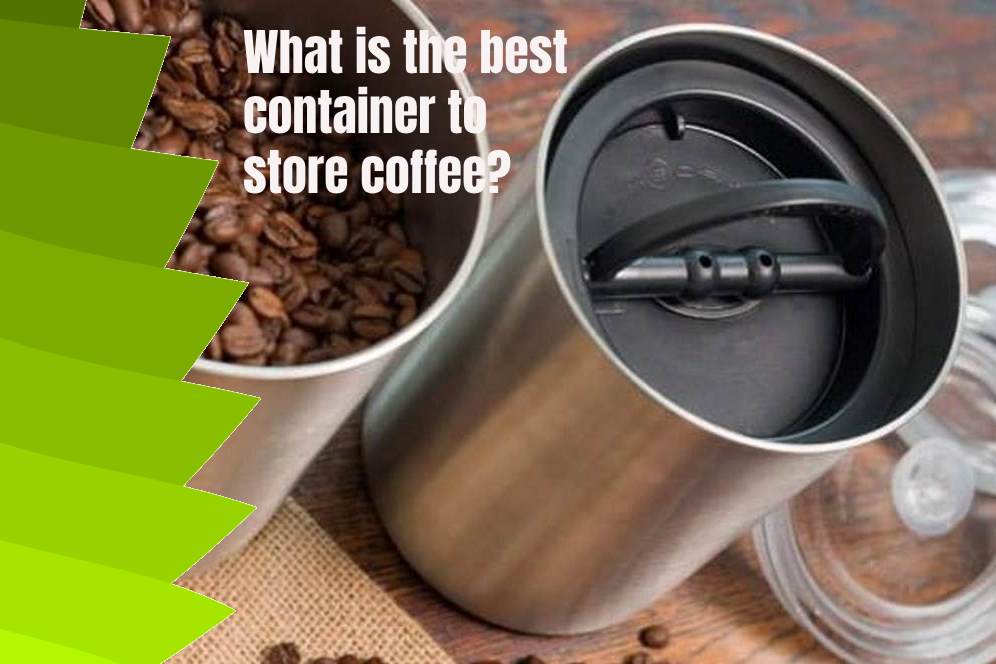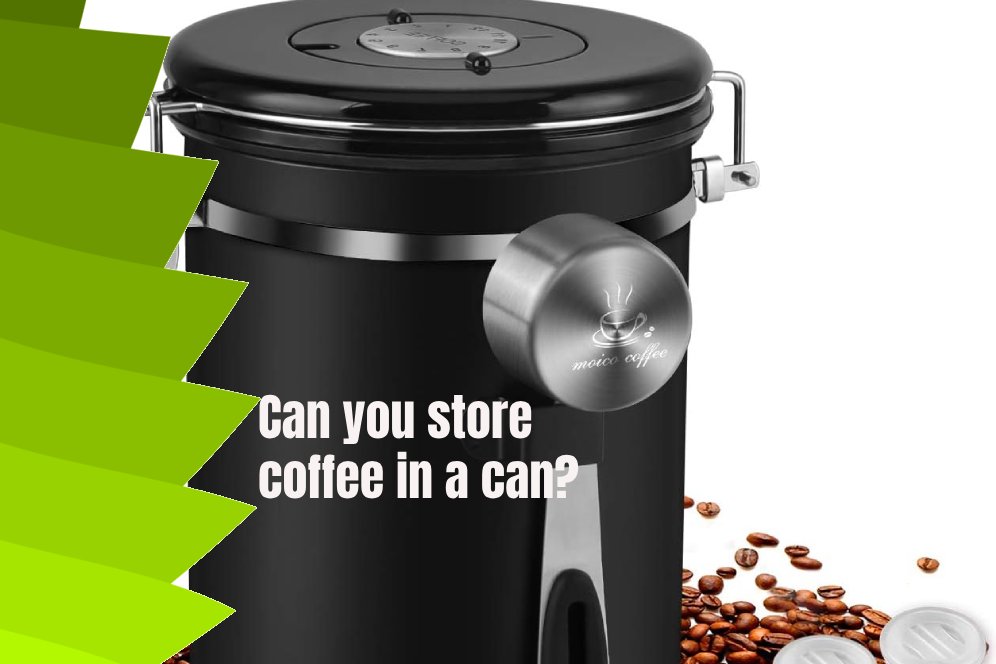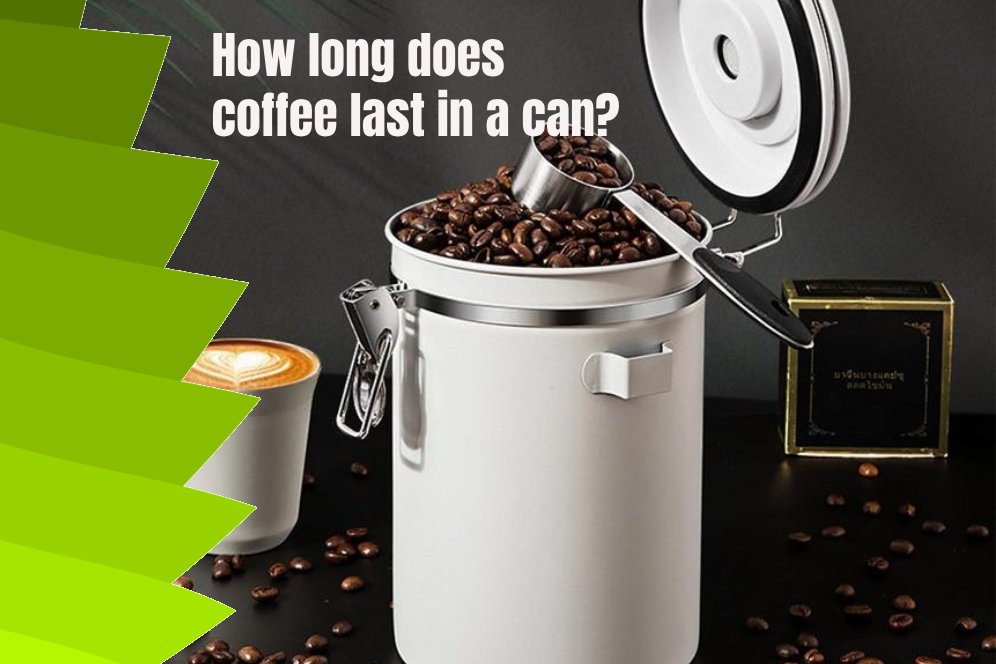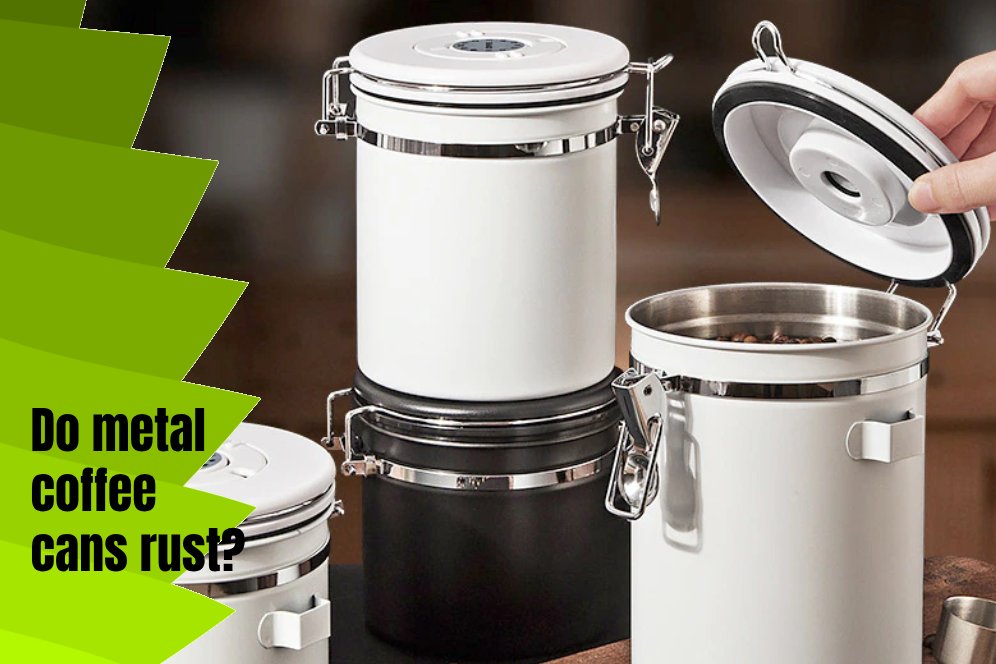Guide To Buying Coffee Grinder Beans Storage Cans
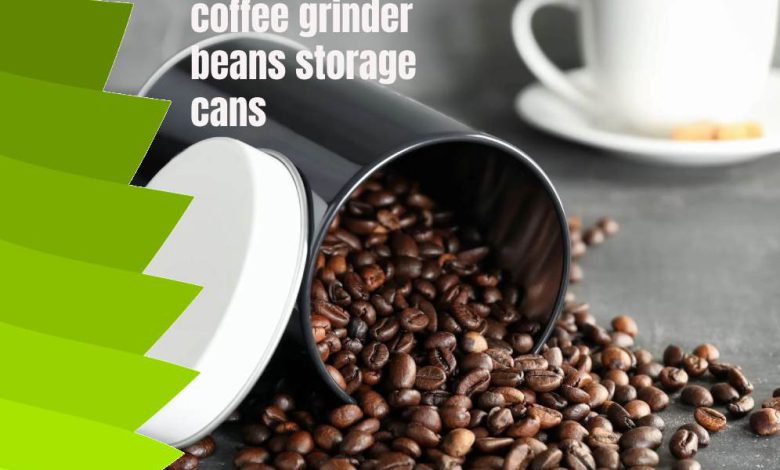
A coffee storage can, also known as a coffee can or coffee container, is a specialized container designed to store coffee beans or ground coffee. This product is designed to keep coffee fresh and preserve its flavor by protecting it from air, light, moisture, and other elements that can degrade coffee quality.
Coffee bean storage cans are usually made of materials impermeable to air and light, such as stainless steel, ceramic, or opaque plastic. They often have seals or vented caps that provide a barrier against the outside elements. An airless coffee storage container helps prevent coffee from oxidizing and losing its flavor.
Coffee cans come in a variety of sizes, from small containers that can hold a few ounces of coffee to larger cans that can hold several pounds. Some coffee cans have additional features such as one-way vents that allow the carbon dioxide released by freshly roasted coffee to escape while preventing oxygen from entering.
To properly store coffee in a coffee can, it is recommended to follow these instructions:
- Use a clean and dry can: Make sure the can is clean and free of any residual odors that can affect the taste of the coffee. It should also be completely dry to prevent moisture accumulation.
- Store in a cool and dark place: Coffee should be kept away from direct sunlight, sources of heat, and humidity. Ideally, a cool pantry or cabinet works well for storing coffee.
- Avoid exposure to air: Air is one of the main culprits of coffee going stale. Make sure the can has an airtight seal to prevent air from getting in and affecting the coffee.
- Avoid frequent opening: Each time the coffee can is opened, it exposes the coffee to air and accelerates the stale process. Try to minimize the unnecessary opening of the can. By properly storing coffee in a coffee can, you can increase its freshness and enjoy a more flavorful cup of coffee.
Contents
What is the best container to store coffee?
The best container for storing coffee is a container that prevents air and light from entering the container. Here are some suggested options:
- Vacuum-sealed cans: Vacuum-sealed cans are designed to remove air from the container, creating air-free storage. This helps preserve the freshness and flavor of the coffee. Look for cans with one-way vents to allow carbon dioxide to escape without letting in oxygen.
- Airless ceramic or glass containers: Airless ceramic coffee containers are excellent choices for storing coffee. They are non-reactive substances that do not absorb odors or tastes. The air seal helps prevent exposure to air and preserve the quality of the coffee.
- Stainless steel containers: Stainless steel containers are durable and provide effective protection against air, light, and moisture. Look for stainless steel containers with airtight lids or silicone gaskets to ensure proper sealing.
- Opaque, airtight plastic containers: If using plastic, choose opaque containers that block light and ensure airtight seals. Avoid containers made of low-quality plastic that may have strong odors or potentially leach chemicals into the coffee. It is important to store coffee in a cool, dark place regardless of the container you choose. Avoid storing coffee in the refrigerator, as moisture and other flavors in the refrigerator can affect the taste of the coffee.
Also, avoid storing coffee near strong-smelling items, as coffee can absorb odors easily. Remember that freshly roasted coffee releases carbon dioxide, so if you’re storing freshly roasted coffee, it’s helpful to have a container with a degassing valve or let the coffee sit for a few days before sealing it completely.
be removed finally, the best container for storing coffee is a container that eliminates air, light, moisture, and odor, and preserves the freshness and flavor of the coffee beans or grounds.
Can you store coffee in a can?
Yes, you can store coffee in a can. Coffee cans, such as metal cans or sealed containers specifically designed to store coffee, can be used to store coffee beans and ground coffee. It is important to choose a can that provides adequate protection from air, light, moisture, and other elements that can degrade coffee quality.
When using a can to store coffee, make sure it has an airtight seal to prevent air from getting in and affecting the coffee. This helps preserve the freshness and flavor of the coffee. Additionally, store the can in a cool, dark place to protect the coffee from heat, sunlight, and moisture.
While coffee cans are a good storage option, it’s worth noting that freshly roasted coffee releases carbon dioxide, and using a can without a degassing valve may result in pressure build-up. If you are using freshly roasted coffee, it is generally recommended to use a container with a degassing valve or transfer the coffee to a can after a few days of degassing.
Finally, the key is to store the coffee in a container that provides adequate protection from the elements that can degrade its quality, whether that’s a purpose-built coffee can or another sealed container.
How long does coffee last in a can?
The shelf life of coffee stored in a tin can or any other closed container can vary depending on various factors, including the type of coffee (whole bean or ground), the degree of roasting, and storage conditions. Here are some general guidelines:
- Whole Coffee: Whole bean coffee generally stays fresher than pre-ground coffee. When coffee is stored in sealed containers, whole coffee beans can maintain their quality for about 1 to 3 weeks after the roasting date. However, it’s worth noting that the flavor and aroma of coffee start to deteriorate over time, so it’s ideal to consume it close to the roast date for the best experience.
- Ground Coffee: Ground coffee has more surface area exposed to air, making it prone to flavor loss. When stored in an airtight container, ground coffee can stay fresh for about 1-2 weeks after the opening or roasting date, depending on the specific coffee and storage conditions. But it is recommended to consume ground coffee as soon as possible after opening for the best taste. It’s important to remember that these are general guidelines, and brands or types of coffee may have specific shelf-life recommendations or variations. In addition, if the coffee is exposed to adverse conditions such as heat, sunlight, or moisture, its quality may decline faster.
To ensure the best taste and freshness, it is recommended to buy coffee in smaller quantities, preferably in quantities that you can use within a few weeks, and store it properly in a cool, dark place away from direct sunlight, heat sources, and Keep moist. Remember to keep the container tightly closed after each use to minimize exposure to air.
By following these storage instructions, you can maximize shelf life and enjoy a better cup of coffee.
Do metal coffee cans rust?
Metal coffee cans can rust if they are made of ferrous metals such as mild steel or iron and are exposed to moisture or corrosive environments. However, many coffee cans today are made of rust-resistant materials such as stainless steel or aluminum.
Stainless steel coffee cans are very popular because they are durable, corrosion resistant, and effectively protect the coffee stored inside. Compared to ordinary steel cans, they are less susceptible to rust.
Aluminum coffee cans are also commonly used and are naturally corrosion-resistant due to the formation of a thin layer of oxide on the surface that protects the metal from rusting.
It’s important to note that if a metal coffee cup is scratched or damaged, it can create a potential entry point for moisture that can lead to rust over time. Therefore, maintaining and maintaining metal coffee cans is essential to maintain their integrity and prevent rust.
If you notice rust on a metal coffee can, it is better to transfer the coffee to a new container to ensure its freshness and avoid rust contamination.
In summary, while metal coffee cans can rust under certain conditions, choosing cans made from materials such as stainless steel or aluminum and proper care and maintenance can help reduce the risk of rusting.
